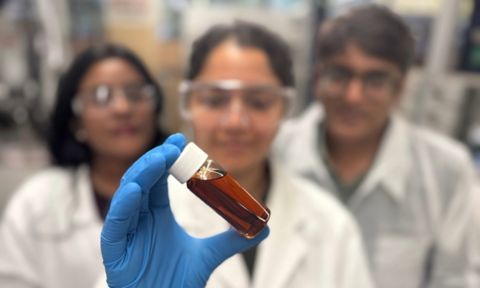A new four-year project has been awarded €6 million (AUD$9.7 million) by the European Union’s Horizon Europe program to facilitate circular economy practices in metal production.
Metal processing and production is responsible for a substantial percentage of carbon emissions in the manufacturing sector, with energy intensive processes such as ingot casting, milling, shaping and end of disposal of materials generating waste and other by-products that have a negative impact on the environment.
Moreover, additive manufacturing and machining processes require expert knowledge at the process development phase, and the uptake of such advanced technologies generally requires a long time and a lot of effort by new graduate engineers.
The Demonstration of a sustainable circular-by-design manufacturing system based on additive manufacturing (DIAMETER) project is expected to have significant positive environmental and economic impacts.
Additive manufacturing can support the transition from a linear to a circular economy, revolutionising traditional manufacturing processes by layering materials, offering unprecedented design flexibility and material efficiency.
Some additive manufacturing techniques also employ recycled materials, further resonating with the EU Circular Economy Action Plan of promoting responsible resource use and reducing waste.
Professor Ivan Cole from RMIT's School of Engineering and Chief Investigator on the project said that DIAMETER aligns with the scope of compliance of the European Green Deal, which promotes lower carbon emission technologies and better resource efficiency.
“To implement the European Green Deal, significant efforts are needed in the manufacturing sector where more than half of greenhouse gases emitted relate to energy consumed during manufacturing processes,” Cole said.
“DIAMETER’s digital platforms, integrated with machine learning and artificial intelligence, will focus on increasing both sustainability and circularity in the sector.”
As a DIAMETER project partner, RMIT Europe has been awarded €412.5K (AU$671K) to lead tasks related to process simulation and validation, besides contributing to the development of a series of digital tools to facilitate the implementation of circularity strategies.
The RMIT team includes Professor Ivan Cole, Associate Professor Andrey Molotnikov and Dr Maciej Mazur from the RMIT Centre for Additive Manufacturing and Dr Quentin Schmid, the Postdoctoral Fellow at RMIT Europe.
The digital tools, integrated into a platform called DIAgonal, will promote remanufacturing, renewal, repair and material recycling in additive and machining processes typically utilised in the aerospace, automotive and moulding industries.
DIAMETER researchers will validate their design and process improvements in industrial use scenarios related to the manufacturing of catalytic converters, valves, aircraft structural parts, and the repair and remanufacturing of pressing dies.
A second platform, DIAdemia, will be developed to support the expeditious upskilling of the sector’s workforce through interactive training courses, workshops and exercises.
“At RMIT, one of our tasks will be to lead the development of a design of an AI-assisted environmental tool to increase the circularity of the manufacturing system, which aligns with one of the strategic themes within the RMIT Centre for Additive Manufacturing,” Molotnikov said.
By focusing on enhancing circular economy practices in manufacturing, DIAMETER is expected to make a significant contribution to reducing the carbon footprint by increasing recycling practices, developing a greener Industry 4.0, and encouraging local production.
Sabanci University in Türkiye will lead the international consortium of partners whose expertise spans both academia and industry.
Partners: Sabanci University (coordinator), RMIT Europe, KTH Royal Institute of Technology, Optik am Fraunhofer IPT, Fraunhofer IWU, University of Sheffield - AMRC, CARTIF, ModuleWorks, OC Open Consulting, Stratagem Energy, Uni Systems, F3nice, Trentino Sviluppo, ValCUN, Turkish Aerospace Industries (TAI), Valland SpA, Coskunoz Kalip Makina (CKM).
Associated partners: RMIT University, University of North Carolina at Charlotte.
Story: Hannah Tribe





